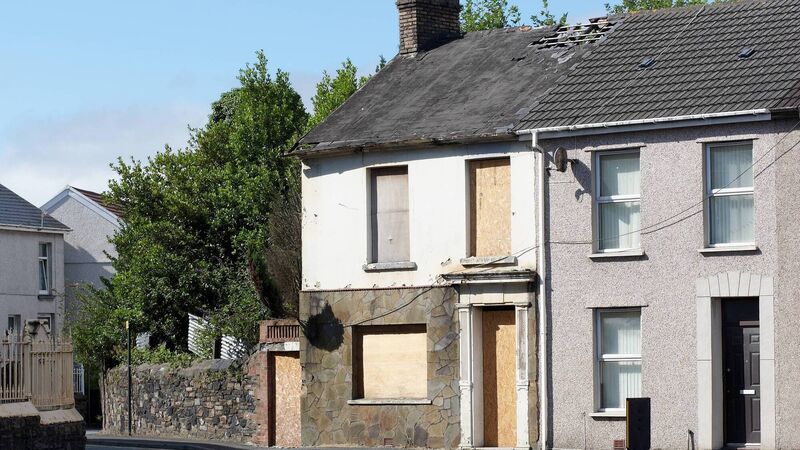11,000 vacant and derelict properties 'have been identified for compulsory purchase'

Many property owners are expected to engage with councils and avail of grants to bring their properties back into use before a CPO is issued. Picture: iStock
Some 11,000 vacant and derelict properties have been identified for compulsory purchase orders (CPOs) by local authorities.
However, many landowners will likely engage with councils and avail of government grants to bring their properties back into use before a CPO is actually issued on their property, the Oireachtas housing committee has heard.
UCD School of Architecture, Planning and Environmental Policy assistant professor Orla Murphy said that 80,328 to 164,000 vacant and derelict residential properties exist in Ireland, based on Census 2022 and the latest GeoDirectory Residential Report figures.

And at least 30,800 vacant commercial properties could be brought into use, Prof Murphy said.
Sinn Féin Cork North Central TD Thomas Gould said our towns and cities are “falling down around us”.
Mr Gould called for more CPOs of empty properties to tackle the problem:
He said local authorities must have adequate powers to prevent “land hoarders” from continuing to leave “derelict buildings destroy our towns, villages and city centres".
A 25% saving was found when a council used direct labour rather than contractors to renovate and maintain housing stock.
Longford County Council director of services Samantha Healy said that, since switching to the council’s own repair crews in April, they have found works cheaper by about 25% and also more efficient.
Fianna Fáil Cork South Central TD Séamus McGrath said there were no real sanctions for landowners who were leaving their properties vacant or derelict.
Mr McGrath said “only a fraction” were paying any tax or levy on it.
Each local authority now has a dedicated vacant homes officer tasked with identifying vacant properties, engaging with owners, and co-ordinating access to funding supports.
These supports include the vacant property refurbishment grant (Croí Conaithe), the urban regeneration development fund (URDF) and the mechanism of compulsory purchase orders (CPOs).
Local authorities also maintain derelict sites registers with the powers to impose a levy in certain cases.
The vacant property refurbishment grant provides up to €50,000 for the refurbishment of vacant properties for use as homes and up to €70,000 where the property is derelict.
To the end of September 2025, over 14,900 grant applications have been received across the country, over 11,000 have been approved and over 3,670 grants have been paid, amounting to over €200m.
However, some TDs and senators questioned whether there was "too much carrot and too little stick" when it came to vacant and derelict property owners.
The CSO's latest vacancy data for 2022 and 2023 note a national vacancy rate of 3.3% at the end of 2023, dropping from 3.6% in 2022, although overall vacancy trends are declining nationally, the committee heard.
Prof Orla Murphy said: "Today, we have a worsening housing crisis and a parallel urgent need to reduce carbon emissions within a rapidly closing window. Meanwhile, over 80,000 empty homes and an increasing amount of vacant other buildings sit idle.
"This is a stock of buildings already connected to expensive water, drainage, energy, data and transport infrastructure.
"Property ownership is a privilege and conveys societal responsibility. Reusing vacant buildings addresses the dual housing and climate crises.
"We need to shift from a national mindset of asset hoarding to one which values limited resources of land and buildings, and makes more intelligent use of them," she said.
Data on the CPO activation programme, launched in april, 2023, is being verified and finalised and will be published in the coming weeks, the housing committee heard.












